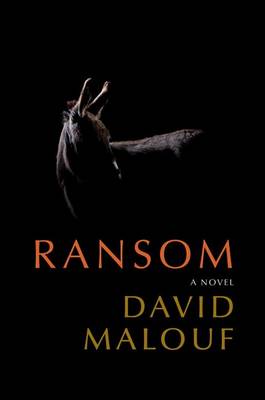Reviewed by Michael @ Knowledge Lost on
Ransom starts at the point where Priam’s son Hector is slayed by Achilles and mainly focuses on the two characters. I’m not sure about Iliad and I’m not going to speculate on what Homer was trying to say in the poem but I will look at what Malouf is saying. Ransom is a novel on human grief, love and even revenue in an intimate and rather tender approach to the subject matter. The emphasis is on the human emotions behind the story that plays out during the Trojan War. Although the novel explores the emotions of both Achilles and Priam, not really caring about any of the other characters so we only really get to experience the ideas of grief and revenge.
The main point on reading this novel was to explore the idea of intertextuality or the relationship between two interconnecting pieces of text. While I can’t say I’ve had much experience with intertextuality, the only novel that springs to mind is The Amazing Adventures of Kavalier and Clay; I suspect there is a little interconnectivity in all novels. Intertextuality covers everything from modernisations, parodies, reimaginings and anything that borrows from a different text.
This often makes me wonder, at what point do we stop studying intertextuality and more a look at plagiarism? The concept of intertextuality and plagiarism feels like a very thin line. Ransom for example is a retelling of Iliad where David Malouf wants the reader to explore this classic poem the way he sees it. This is his interpretation of what he feels Homer was trying to say. Doesn’t mean it is the only interpretation, Malouf is just taking his ideas and exploring it further.
One day I will get around to reading Iliad and The Odyssey; I’m saving them for when I have some time to read critically and take the time to full understand the two epic poems. Once I’ve done that, I think I might revisit Ransom, see if I get something out of it. I did enjoy Malouf’s style and it was an interesting novel to read but I really need to read the original first.
This review originally appeared on my blog; http://literary-exploration.com/2014/05/08/ransom-by-david-malouf/
Reading updates
- Started reading
- 14 April, 2014: Finished reading
- 14 April, 2014: Reviewed

